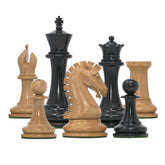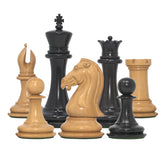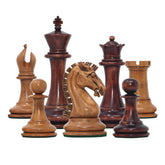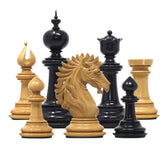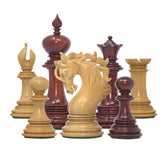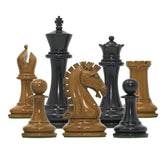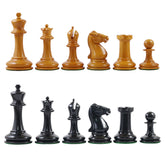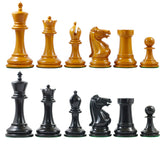What Are The Best Ways and Right Age To Introduce Chess To A Child?
ENGLISH NAME CHESS NAME
KING KING
QUEEN QUEEN
ELEPHANT ROOK
HORSE KNIGHT
CAMEL BISHOP
SOLDIER PAWN
First of all, I would like to state that I have two lovely kids of my own, so the answer is also based on my first-hand experience, and also the following answer is written on the basis of my conversations with parents from the chess world, my own observations, research, and the short period during which I worked in a local chess club.
That being said, I think that there is no ‘right age’ to introduce chess to a child. Basically, it all depends on the psychological development of a particular individual and his/her aptitude toward logical puzzles, and sorting the age might vary. Most of the children are able to grasp and learn the basics of the game in the period between 3–5 years of age, but my research has seen 7–to 9 years old picking up chess and getting attached to the game.

Even the current world chess championship, Magnus Carlsen, didn’t learn chess before he was 5. Initially, he didn’t have a particular interest in the game, but then started reading some chess books and discovered the game's beauty on his own. Due to his staggering, astonishing memory and natural talent for the game, he revealed he is just made for chess, the rest is history and the world knows about it.
I don’t think that there is one way to introduce chess to your child. Through the years I have asked many chess players how they started playing, and how they build interest and I get a huge variety of answers. An approach that worked for someone, might not have worked for others. So it basically depends on individual to individual.
For instance, I remember when my father taught me chess, he simply explained to me how the pieces move and we started playing. I think now the time has changed and there are many tips and tricks which might follow to learn the game properly.
Yes, one can learn chess online but playing physically gives you a different approach.
Here are a few best world-class sets which I am going to tell are.
- handmade chess set
- hand-carved wooden chess set
- handcrafted chess set
- handmade wooden chess set
- wood carved chess set
- Staunton wood chess set
- antique chess set
- antique chess sets for sale
- classic wooden chess set
- antique Staunton chess set
- wooden chess pieces
- handmade chess pieces

To learn chess in the old manner considered, Most of the ‘experts’ actually think it is the worst approach - and not without reason, considering many kids have short attention spans.
But still, there is a lot of advice out there, and I think the most common guidelines are quite a good starting point.
Make the Learning Fun
A few years back when I assisted a chess tutor in an elementary school (who was blind) I was amazed at how effectively he taught a large group of children about chess basics. He gave everyone a colored board, where every square was marked with the corresponding notation (A1, B1, C1, etc.). He divided the kids into pairs and gave each pair a chess piece. Then he started asking kids the basic questions about the piece movement, such as:
Put the bishop is on A1. Can it go to C3?
Put your knight on B1. Can it go to C4? And many more
I was startled by how active the young ones were. They answered the questions perpetually. They thoroughly enjoyed and learned the combination of visual representation and the challenge they felt they could solve on their own. Is”t it amazing?
A colleague from my chess club runs his own chess school. I once asked him how on Earth he manages to capture the attention of huge groups for an extended period of time. He simply told me he gives them numerous mini-games - king races, only pawn endgames, first to check wins variants, bughouse, etc. Children like the variety, kids like playing games, kids have fun and it keeps them occupied and engaged. The best way to learn chess with full focus.
Praise early, praise often
I have noticed other things when observing the aforementioned chess tutor's work. Whenever a kid answered the question correctly, he would always praise them. And not just, ‘Oh, that’s good’ type of praise, but honest, sincere, enthusiastic, ‘Wow, John, that is excellent’ type of praise. It cultivated their interest even further, really works like magic.
Now, I should probably also say something about the increasing number of chess prodigies in the 21st century. I am talking about wunderkinder who are able to play comprehensive chess games at a very young age, such as the three-year-old Misha Osipov. You can see the little boy here in this video, playing the former World Champion Russian chess grand master Anatoly Karpov:

Overambitious Parents
To be completely honest, whenever I see a similar video of an extraordinary prodigy, I am filled with horror. Having spent numerous hours in table tennis halls and chess tournament halls I have seen a huge amount of overambitious parents who try to ‘live their children. I personally think it is highly unhealthy and just plain wrong - most of the talents snap later in their career (usually in their teenage years) and give up the activity once and for all.
Sure, a number of them endure all the trials and become really exceptional. But that is only a minority. And even then, what is the price they are paying? Is it really worth sacrificing your whole childhood for the sport? Especially if the same goal can be accomplished with a different approach, with more balance?
I don’t know in which direction Misha’s career is going to unfold. But do you really want your kid to cry on national television at the age of three?
So, long story short, it is almost never too early (or too late) to teach your kid how to play chess. Try introducing it through games and fun activities to maintain his/her interest, but yes, kindly, don’t force him/her to play it and learn it against his will.
Almost all strong players play chess primarily because it is fun. If your kid has fun all along, there is a big chance he might take chess much more seriously at some point in his life.
MAKE CHESS A SIMPLE AND A FUN-LOVING GAME.
Hope you like the article Stay tuned for many more
Visit us at
Email at: stauntoncastle@gmail.com
